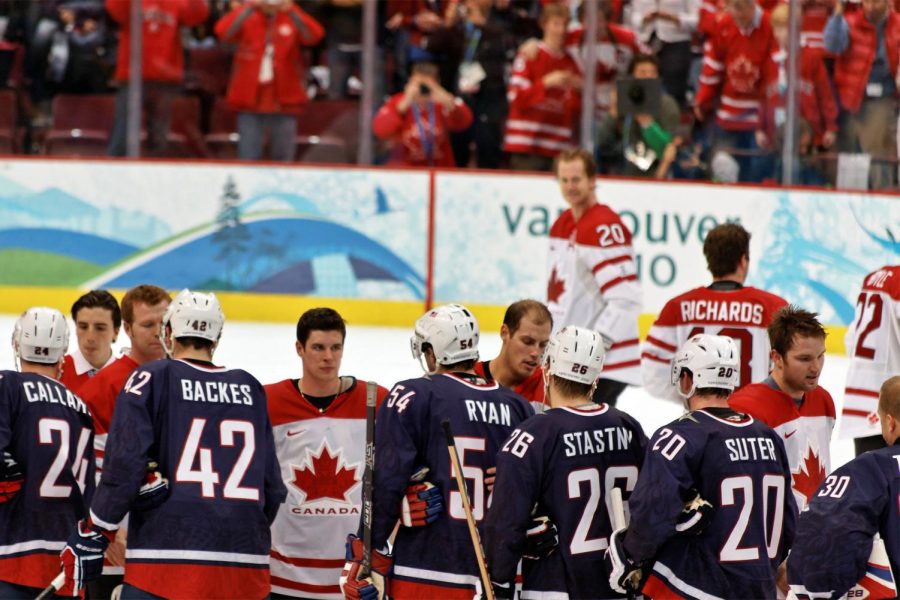Beyond the Bison: The NHL drops the ball on this year’s Winter Olympics, banning players’ attendance
February 15, 2018
Four years ago, American professional ice hockey player, T.J. Oshie became a national hero. With Russian President Vladimir Putin’s eyes fixated on the ice and the host nation’s success resting on the dynamite trio of Pavel Datsyuk, Alexander Ovechkin, and Ilya Kovalchuk, Oshie scored on four of his six chances. These goals came in a shootout to win a thriller for the United States men’s hockey team over Russia at the Sochi 2014 Winter Olympics.
While the United States and Russia were not competing for a gold medal in this early round game, it had the drama, intensity, and public interest reminiscent of the 1980 Miracle on Ice game in Lake Placid, N.Y. Though the Miracle on Ice may never be rivaled for the public attention it captured, it was not long after the game ended in Sochi before President Obama personally congratulated Oshie and the rest of the men’s ice hockey team. Several national TV appearances awaited Oshie. The whole country was unified behind this glorious moment in the Olympic spotlight.
Oshie will not compete at this year’s Olympics — not because of some catastrophic injury, or a question of him being a natural fit for the team. Oshie’s health is just fine, and he even scored a career high in goals in last year’s NHL season. The reason he is not playing is the same reason that almost every other player in his league is choosing not to: the NHL banned its players from participating in the 2018 Olympics.
After the overwhelming majority of NHL franchises opposed a disruption in the season by accommodating for Olympic participation from some of its players, the decision was made that NHL players should not compete on their national teams. NHL owners are opposed to taking a 17-day break in the middle of February, a big moment for hockey’s public attention with the NFL season completed and MLB awaiting its start in March. However, many NHL players have been outraged by the decision.
“One hundred percent, we should be there,” Oshie said. “I think it’s our responsibility to play in that tournament and represent our country.”
The strong desire to play in the tournament transcends across NHL players from all competing nations, not just those from the United States. Russian player Alexander Ovechkin, who plays for the NHL franchise Washington Capitals, released a formal personal statement in September 2017 outlining a few reasons as to why the NHL players should have an opportunity to play at the Winter Games.
“I wanted to make this statement so that my words are clear and nobody misunderstands what I am saying,” Ovechkin said. “The Olympics are in my blood and everybody knows how much I love my country. I see the news this week and I am very disappointed that [the International Olympic Committee, International Ice Hockey Federation], and NHL put me and all NHL players in this position when some of the best players in the world do not have the chance to play in the Olympic Games. There is nothing like the Olympic Games. It is still my dream to win an Olympic gold medal for my country. I hope things will change and all of us will have a chance to go again in 2022.”
The decision to exclude NHL players from the games almost guarantees an indiscernible amount of American viewership for Olympic hockey this year. The majority of the country will likely be unfamiliar with the names of players in the tournament. The popularity of the NHL needs all the help it can get, and there is no better, bigger platform in the world to grow a sport than the Olympic Games.
But, as a result of the NHL’s decision, for the first time since 1994 the Winter Olympics will feature a men’s hockey tournament with a collection of National Collegiate Athletic Association players, European professionals, and a few former NHL players that will not grab the American public attention nearly the same way the 2014 tournament did, potentially denying the country of another gold medal.





















